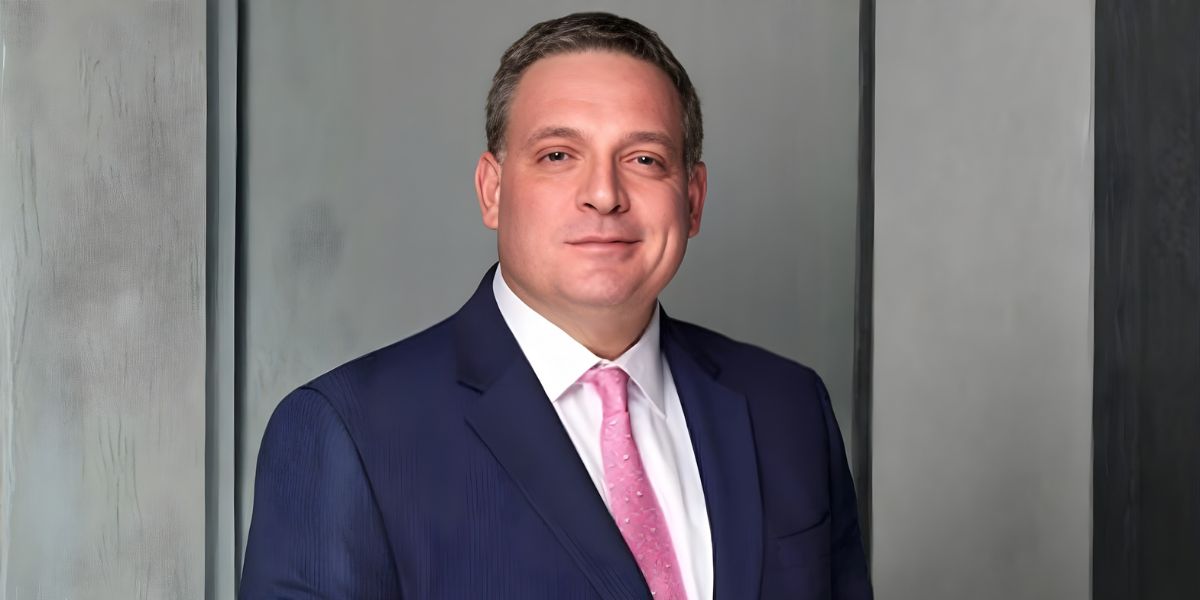By: Repute Vista
In municipal law, communication isn’t background noise — it’s the engine that moves communities forward. Every zoning amendment, redevelopment plan, or public-private agreement depends on how well people understand one another.
“Law is built on process,” he says. “But the process only works when everyone involved understands it. Communication is the foundation for that understanding.”
Vasselli has spent more than two decades in the public sector, advising Illinois municipalities, townships, and public bodies. His firm represents cities such as Pekin, Zion, and Antioch — delivering legal strategy across governance, development, ethics, and intergovernmental cooperation. But what makes his approach different is how deeply he embeds communication and collaboration into every decision the firm makes.
Getting Comfortable with Chaos
Ask any municipal attorney what their biggest challenge is, and most will say the same thing: staying responsive to their clients. Between board meetings, resident inquiries, developers, and department heads, communication can easily become reactive.
Vasselli is the first to admit it’s not easy. “It’s a challenge every day,” he says. “Running a business, raising a family, and serving local governments — it takes structure and a strong team.”
At Vasselli Law, communication isn’t left to chance. The firm carves out time for deep work
— hours dedicated exclusively to complex legal analysis — and separate blocks for responding to emails, phone calls, and client updates.
“The myth of multitasking kills quality. Segmenting time keeps communication deliberate, not chaotic.”
This intentional structure allows the firm to balance focus with responsiveness — a critical factor when serving municipalities that can’t afford delays. “Reliability builds trust,” he adds. “And trust is everything.”
The Power of a Table
Technology can make collaboration efficient, but Vasselli still believes nothing replaces a face-to-face meeting.
“The old-fashioned meeting around a table still works best. That’s where shared goals emerge — and where real solutions begin.”
That principle came to life during one of Vasselli Law’s most defining projects: the Lutticken Leap — a landmark redevelopment deal in the City of Pekin that transformed decades of gridlock into progress.
For fifty years, the Lutticken property — a thousand-acre parcel along Pekin’s planned Veterans Drive — sat untouched. Political turnover, logistical hurdles, and bureaucratic fatigue had buried the project in what Vasselli calls “the gray twilight of maybe.”
Then came a new team — a Mayor and City Manager willing to say “yes” when “maybe” felt safer, an economic development director with vision, and a legal team determined to make belief actionable.
“We didn’t take a chance. We refused to sit still.”
There were daily calls, long nights, and countless conversations. The collaboration between public officials, developers, and legal counsel became a masterclass in persistence.
As Vasselli later wrote in his Medium essay Take the Shot or Watch the Clock: Boldness, Belief, and the Lutticken Leap, the project “wasn’t about taking a chance — it was about refusing to sit in the gray twilight.”
He framed it as a test of boldness — a reminder that municipal law, while often seen as procedural, is also the proving ground of courage.
“Timidity costs time. And delay costs dreams.”
The deal closed in July 2025, opening Pekin’s gateway to new commercial and industrial development — but more importantly, proving that communication backed by courage can cut through decades of inertia.
Common Ground Before Conflict
When negotiations get tense, Vasselli uses a deceptively simple framework: start with agreement.
“We list everything we can all agree on,” he says. “Then we isolate what we can’t. The first list builds trust; the second builds strategy.”
Breaking complex legal disputes into smaller, shared understandings turns arguments into conversations. It’s how Vasselli approaches zoning conflicts, development negotiations, and even intergovernmental disputes.
Translating the Law Into Human Language
For community members and business owners, legal jargon can feel impenetrable. That’s why Vasselli’s communication style often relies on analogies — drawing from culture, sports, or film to make concepts stick.
“Everyone speaks a different language. Some people speak Star Wars, some speak sports, some speak symphonies. My job is to translate the law into the language they understand.”
It’s a technique that’s earned him praise from municipal leaders across Illinois. “Jimmy has a knack for taking something technical and turning it into something human,” one colleague notes. “He doesn’t just explain the law — he makes you care about it.”
Listening as a Legal Strategy
For Vasselli, listening isn’t a courtesy — it’s a competitive advantage.
“If there’s one skill I could improve forever, it’s listening,” he admits. “Not just hearing — listening. Real listening is the most important professional skill there is.”
He defines it as “listening as a verb” — an active, engaged process that reveals what people actually mean, not just what they say. In negotiations involving residents, developers, and municipal boards, that skill turns friction into understanding.
“It’s easy to wait for your turn to talk. But if you’re listening only to respond, you’re not leading — you’re reacting.”
Building a Team That Reflects Collaboration
Internally, Vasselli leads the same way he negotiates: by connecting people and highlighting their strengths.
“When I introduce someone on my team, I tell everyone what they’re great at. It builds respect and shows why we’re all at the table.”
That culture of respect fuels the firm’s cohesion. “Jimmy’s not a stiff lawyer,” says one team member. “He’s a people person. He brings humor, candor, and humanity into the room — and that sets the tone.”
The result is a team that operates with uncommon synergy — where attorneys, paralegals, and staff work seamlessly across municipalities and departments, unified by shared values: speed, integrity, and collaboration.
Constructive Feedback Without Ego
When it comes to giving feedback, Vasselli takes a pragmatic approach.
“Nobody likes hearing what they did wrong. So I start with what they did right.”
He opens with acknowledgment — effort, expertise, and time — before discussing areas for growth. “It’s about the work, not the person,” he says. “People give their time to this mission, often at the expense of their families. You owe them respect.”
He’s equally candid about his own shortcomings. “I’m not perfect,” he says. “I can be terrible at taking feedback myself. But the goal isn’t comfort — it’s progress.”
The Handwritten Difference
Even in a digital world, Vasselli’s hallmark of professionalism remains remarkably analog: the handwritten note. Whether thanking a mayor after a key meeting or congratulating a staff member on a milestone, he prefers ink to email.
“It’s personal. Anyone can send a message. Writing something by hand tells people they matter.”
That detail — a simple, tangible gesture — reinforces the firm’s reputation for authenticity and attentiveness.
The Face-to-Face Rule
While Vasselli Law embraces digital tools for speed, the team operates by one unspoken rule: face time beats screen time.
Vasselli makes a point to visit clients every two weeks, ensuring discussions remain personal and productive.
“You have to see people’s faces. You have to understand what’s keeping them up at night. That’s how you build trust.”
For him, that trust is the cornerstone of municipal law — the bridge between public service and progress.
“We’re social creatures. We’re not built to solve problems from behind screens.”
The Throughline: Clarity, Courage, and Connection
At its core, every success story tied to Vasselli Law — from the Lutticken Leap to the everyday coordination of municipal departments — comes down to the same principles: communicate clearly, collaborate boldly, and follow through with conviction.
“Communication isn’t a soft skill,” Vasselli says. “It’s the strategy that makes everything else possible.”









